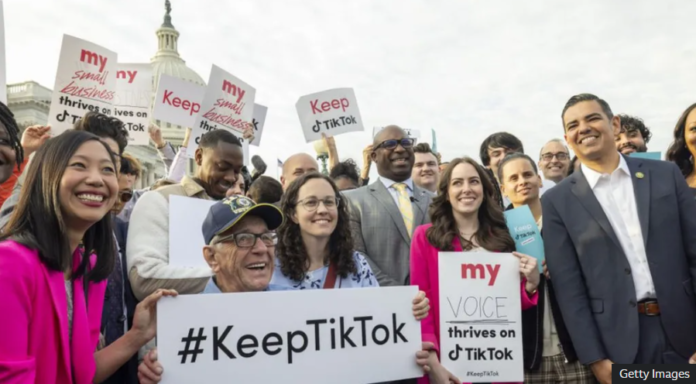TikTok Ban Controversy and Concerns
While the potential ban on TikTok in the US has sparked controversy and debate, it is important to understand the reasons behind this decision. The concerns raised by US officials regarding the app’s ties to China and its influence on young people have been met with both support and skepticism.
Arguments in Favor of the Ban
On one hand, those in favor of the ban argue that TikTok poses a national security risk due to its ownership by ByteDance, a Chinese company. They claim that the Chinese government could potentially access user data and use it for malicious purposes. Additionally, they express concerns about the app’s content moderation practices and its potential to spread misinformation and propaganda.
Arguments Against the Ban
On the other hand, critics of the ban argue that it is an overreach of government power and could infringe on the freedom of speech and expression of TikTok users. They highlight the fact that TikTok has a large user base in the US, consisting of millions of individuals who use the platform to share creative content and connect with others. They argue that banning TikTok would not only deprive users of a popular social media platform but also stifle innovation and creativity.
Skepticism about the Ban’s Effectiveness
Furthermore, some skeptics question the effectiveness of a ban, suggesting that it may not actually address the underlying concerns. They argue that instead of banning TikTok outright, efforts should be focused on implementing stronger data privacy regulations and ensuring transparency in the app’s operations.
The Future of TikTok in the US
As the legislation makes its way through the Senate, the future of TikTok in the US remains uncertain. If the bill becomes law and ByteDance fails to sell its stake in TikTok within the given timeframe, the app could indeed face a ban. This would undoubtedly have significant implications for both the company and its millions of users.
TikTok’s Efforts to Address Concerns
However, it is worth noting that TikTok has taken steps to address some of the concerns raised by US officials. The company has established a US-based subsidiary, TikTok Global, and partnered with Oracle and Walmart in an effort to address data security concerns and separate its operations from ByteDance’s Chinese operations. These measures have been seen by some as a way to mitigate the potential ban.
TikTok’s Defense Against the Ban
TikTok’s defense against the proposed ban is multifaceted and seeks to address the concerns raised by the US government. The app argues that banning it would infringe upon the free speech rights of millions of Americans and have negative consequences for businesses that rely on TikTok for marketing. It also emphasizes its significant contribution to the US economy.
Concerns about TikTok’s Ties to China and National Security
Despite TikTok’s efforts to address security concerns, questions still remain about the potential threat the app poses to Western countries. Concerns revolve around data privacy, the Chinese government’s influence over ByteDance, and the potential for TikTok to be used as a platform for cyberattacks.
Complex Debate Over TikTok’s Threat to the West
The debate over whether TikTok is a threat to the West involves considerations of data privacy, national security, and the influence of foreign governments over private companies. Western countries must carefully evaluate the risks and take appropriate measures to mitigate them.
Implications of a TikTok Ban
While the ban on TikTok in the US has raised concerns about national security and data breaches, there are potential implications to consider. Banning TikTok could stifle creativity, disrupt the social media landscape, and strain international relations. However, it is important to address the concerns raised about data privacy and national security.
Preserving Free Speech and Creative Expression
As the debate continues, policymakers must balance national security with the preservation of free speech and creative expression. Finding a solution that addresses these concerns without stifling innovation is crucial.

